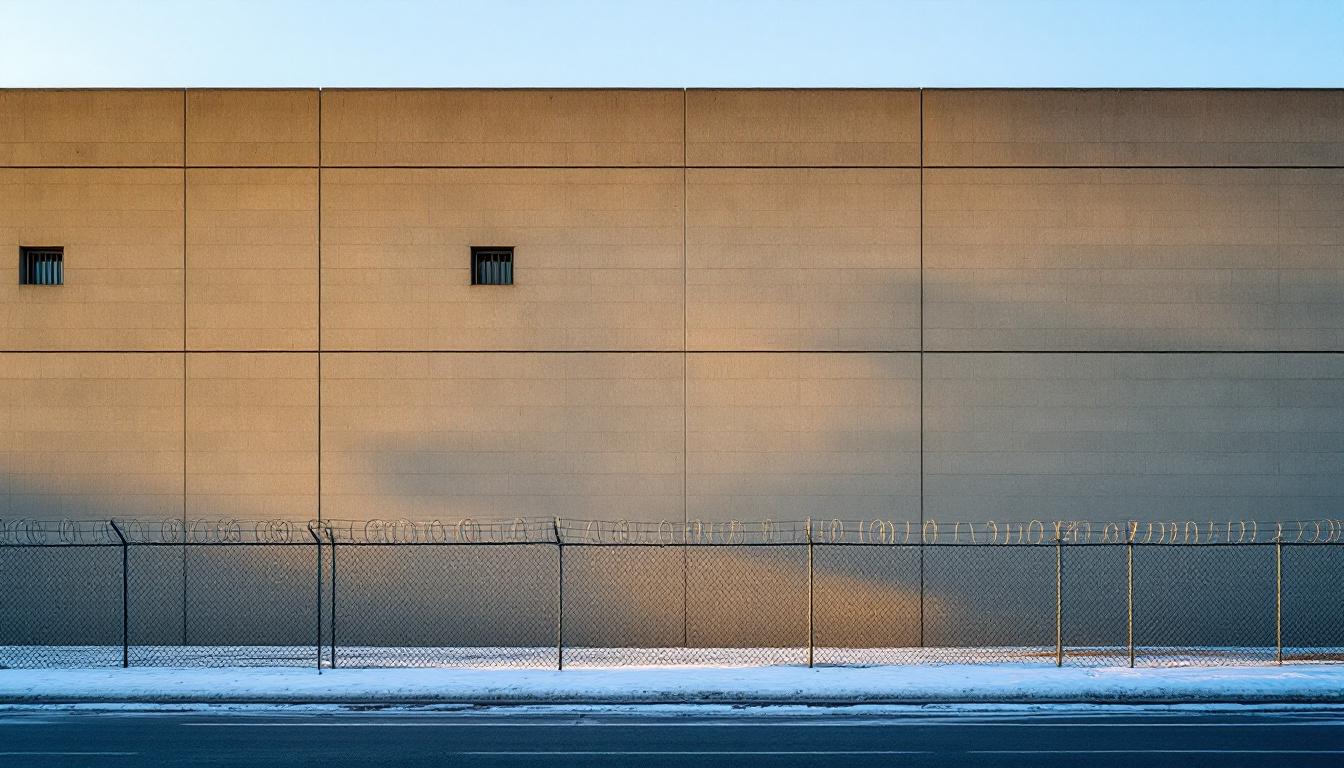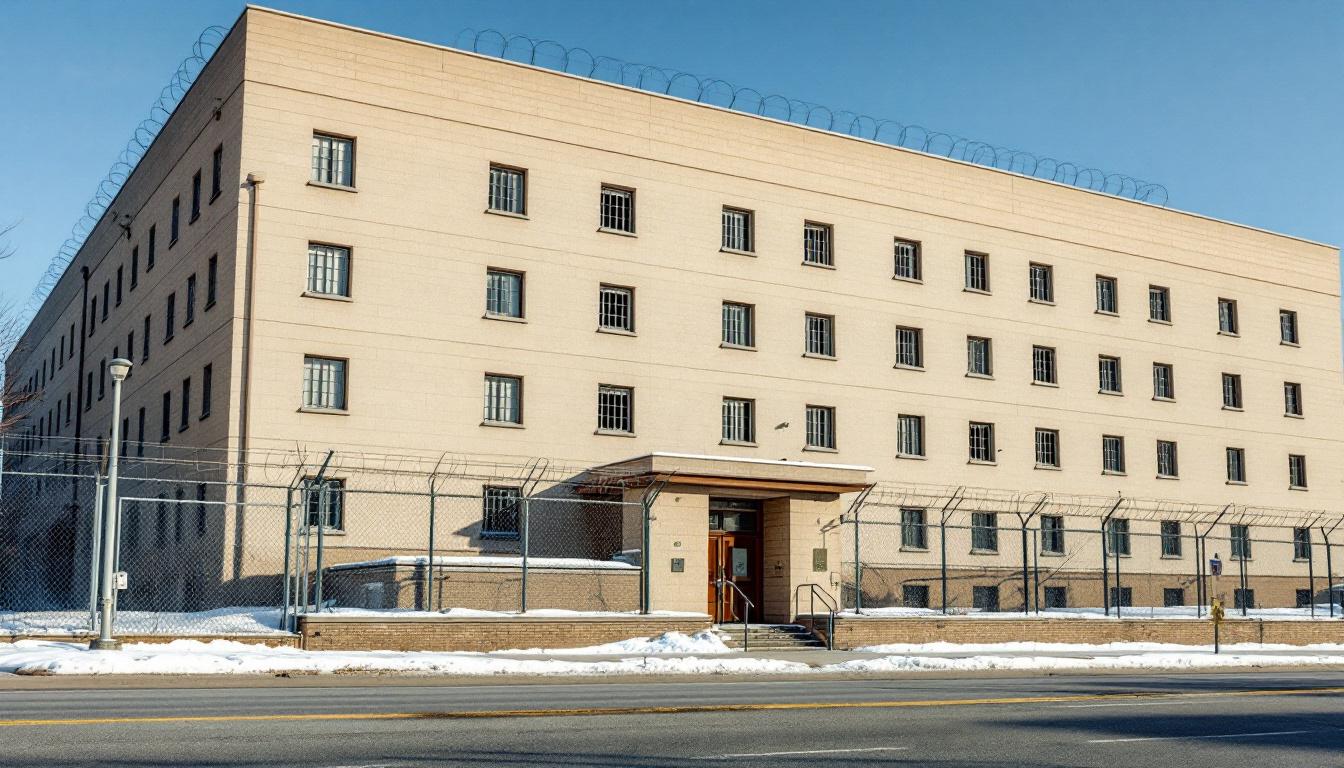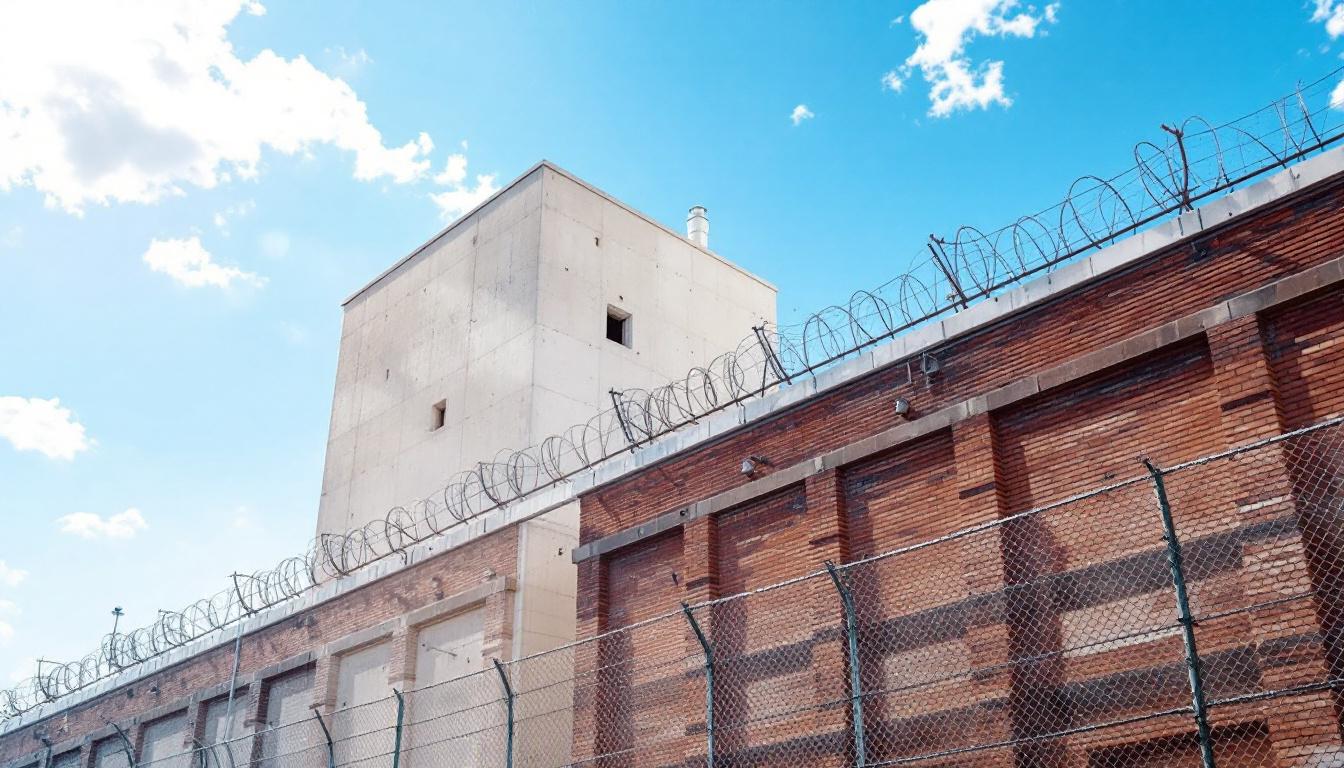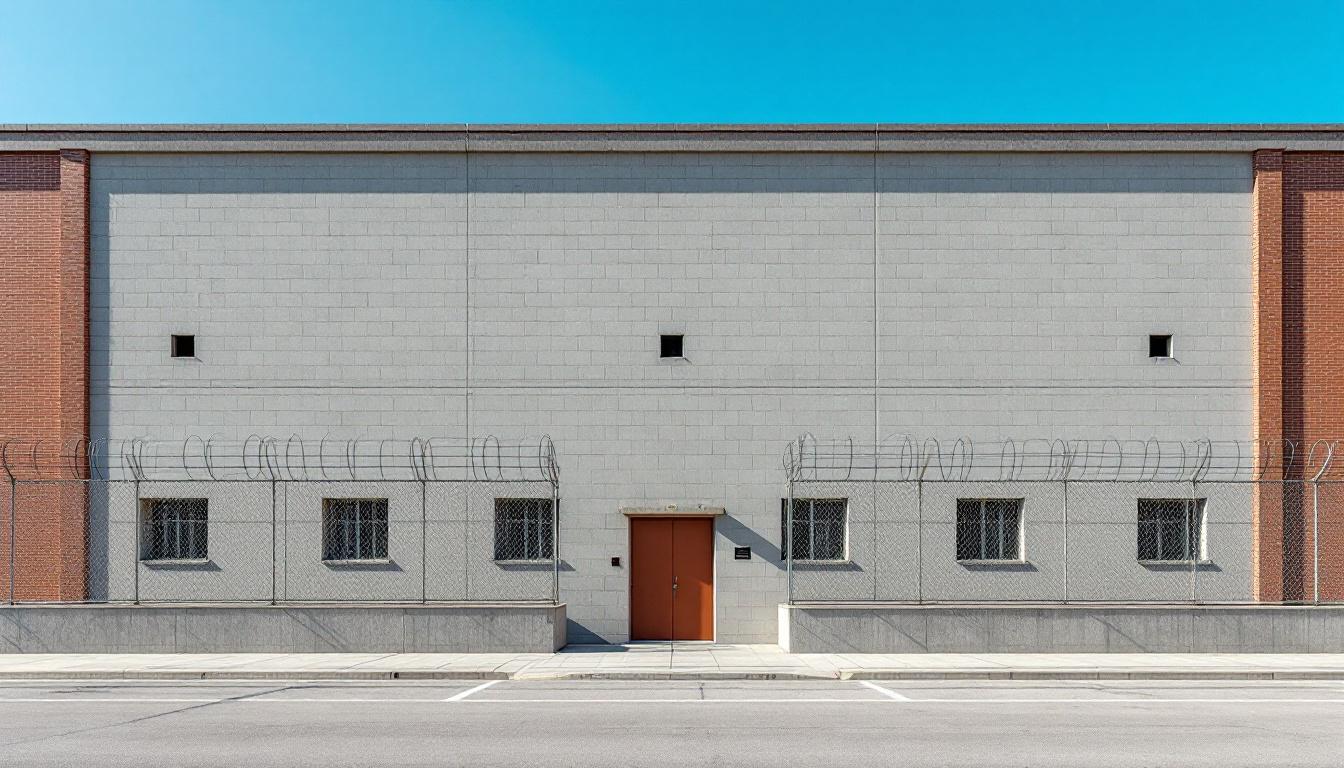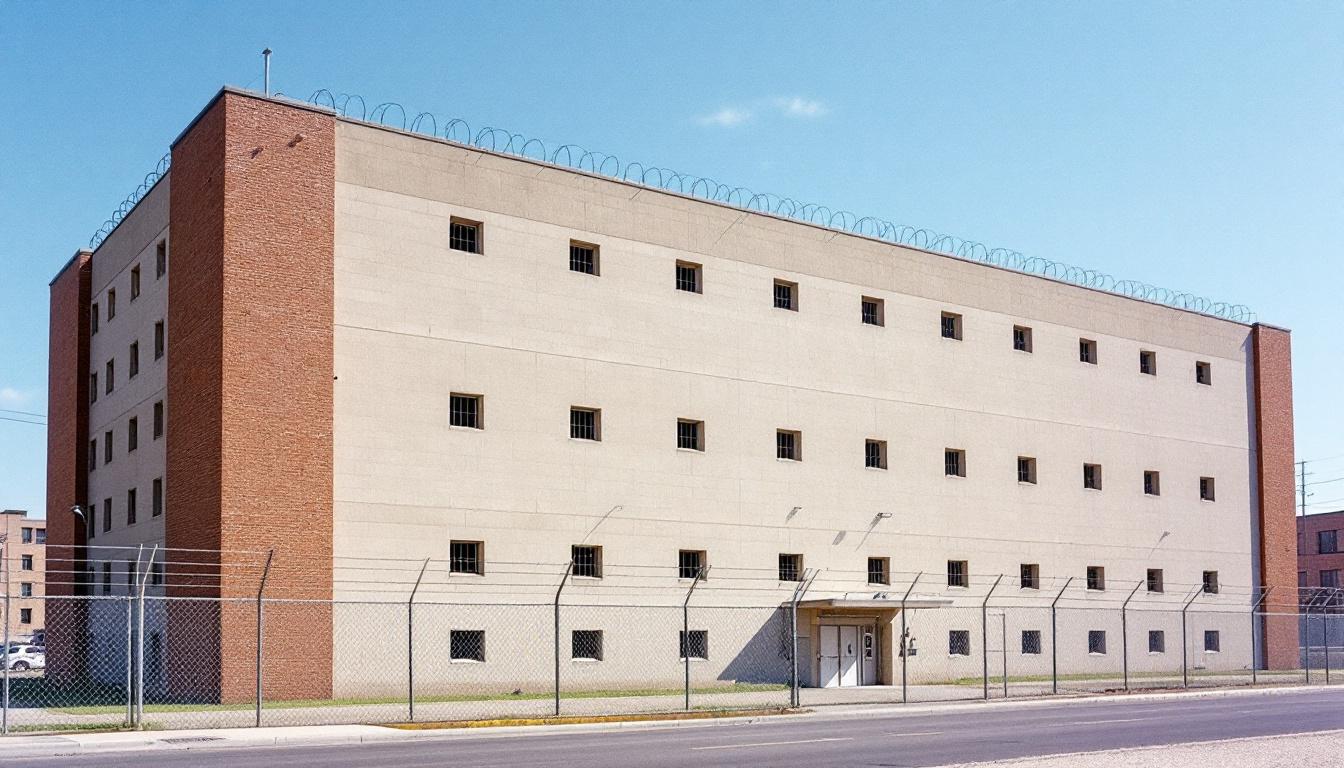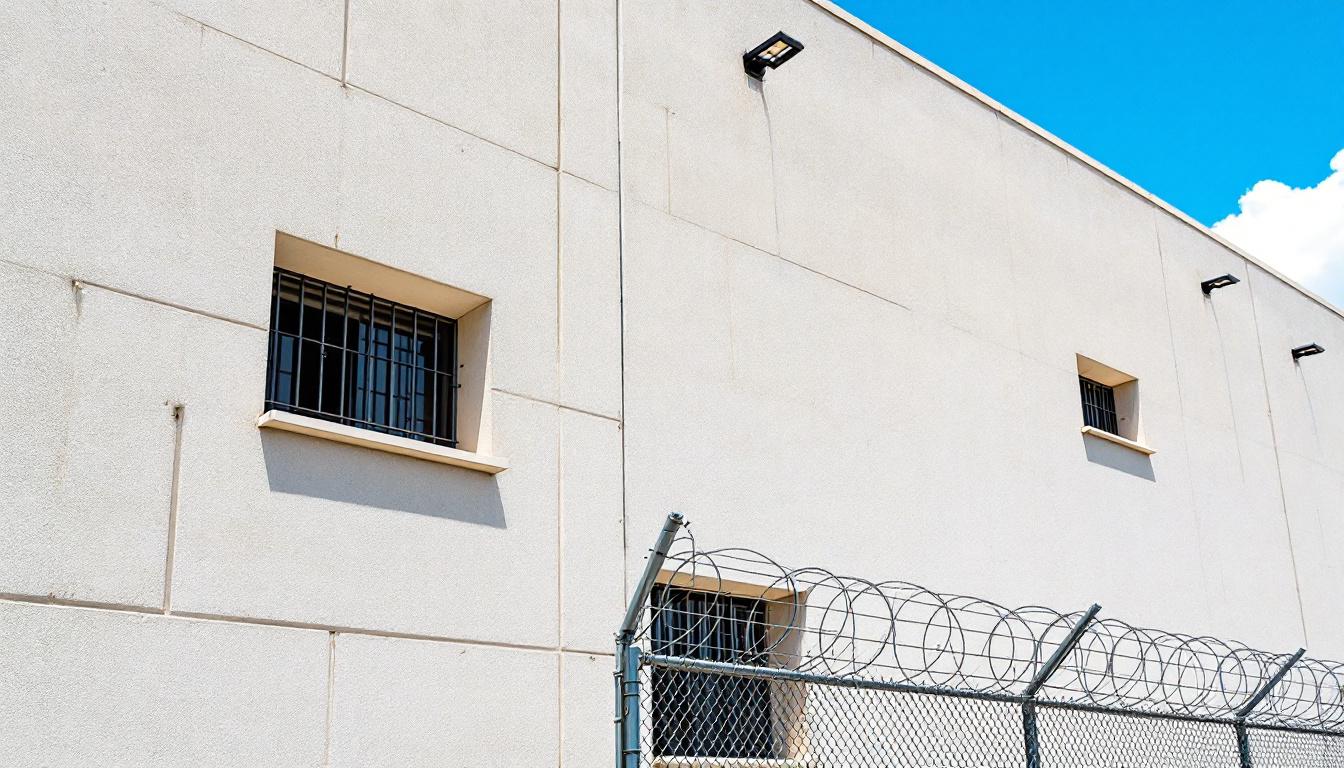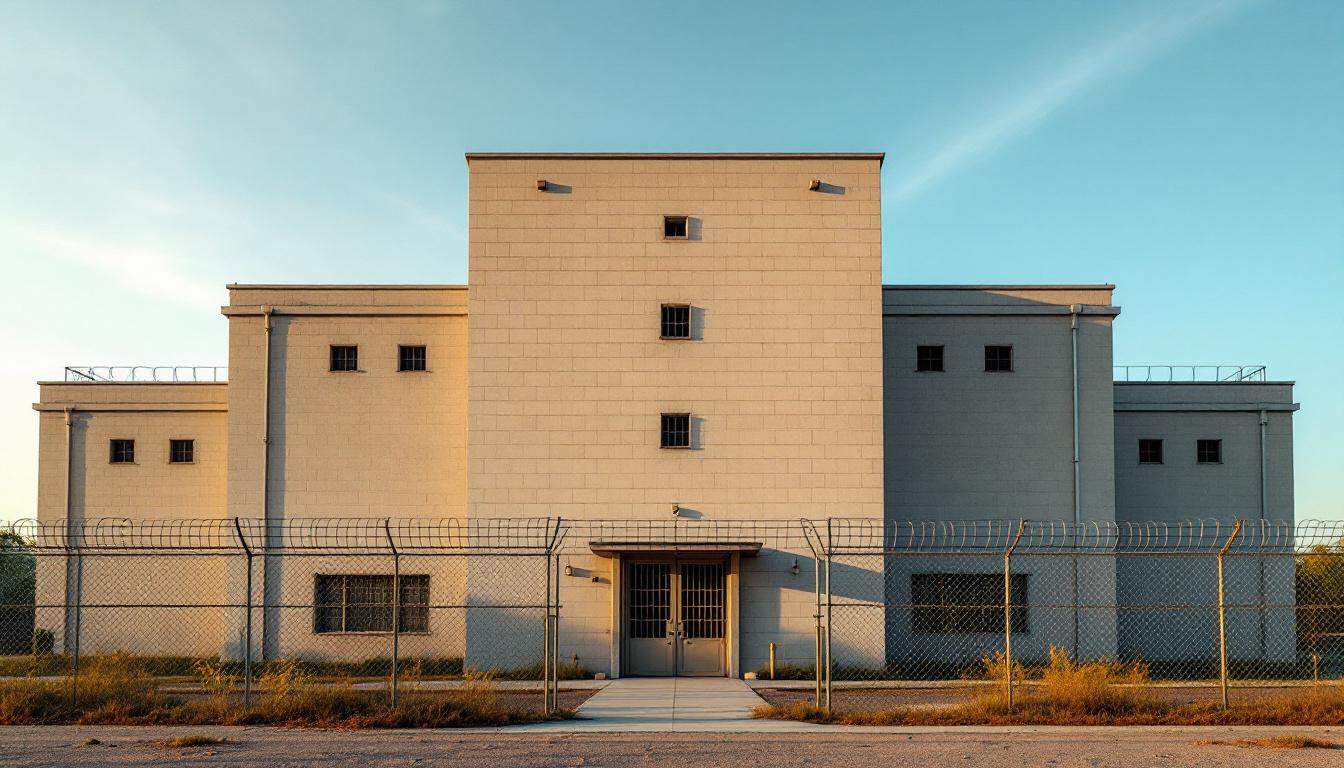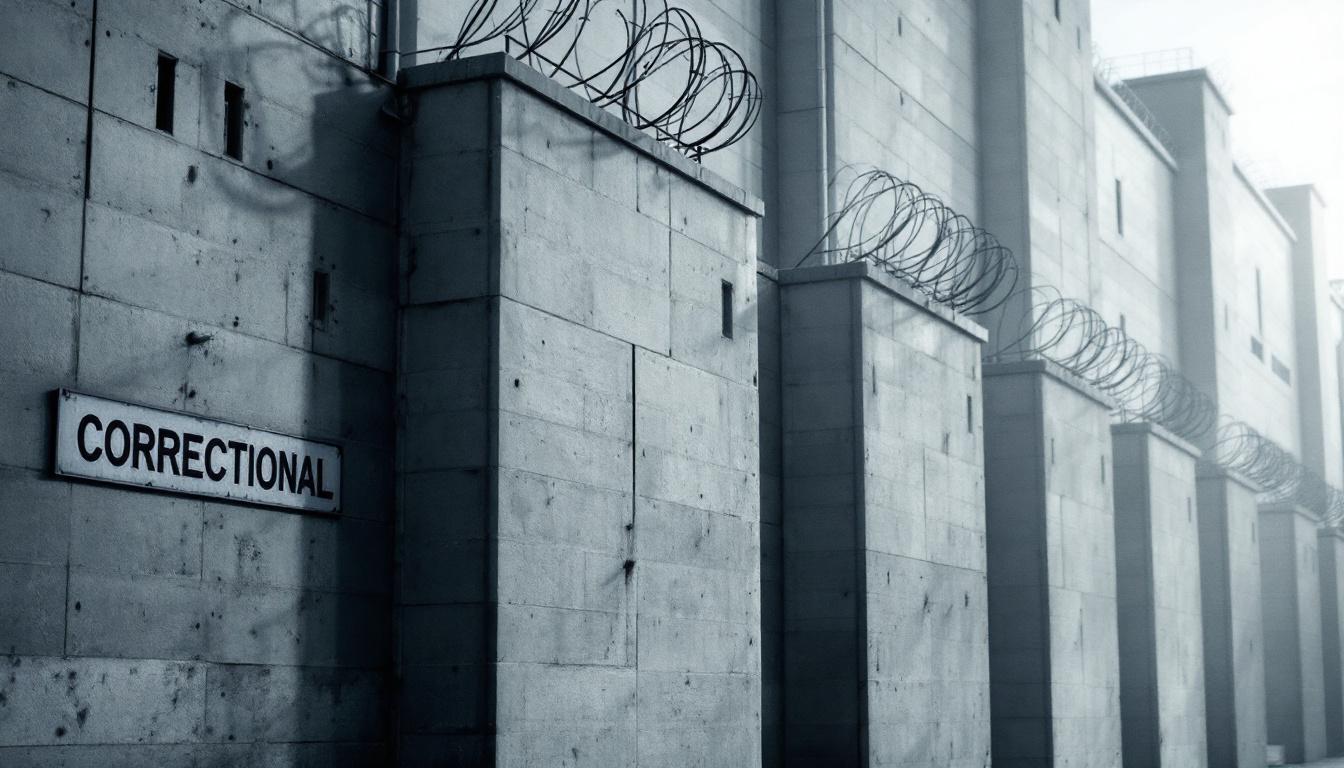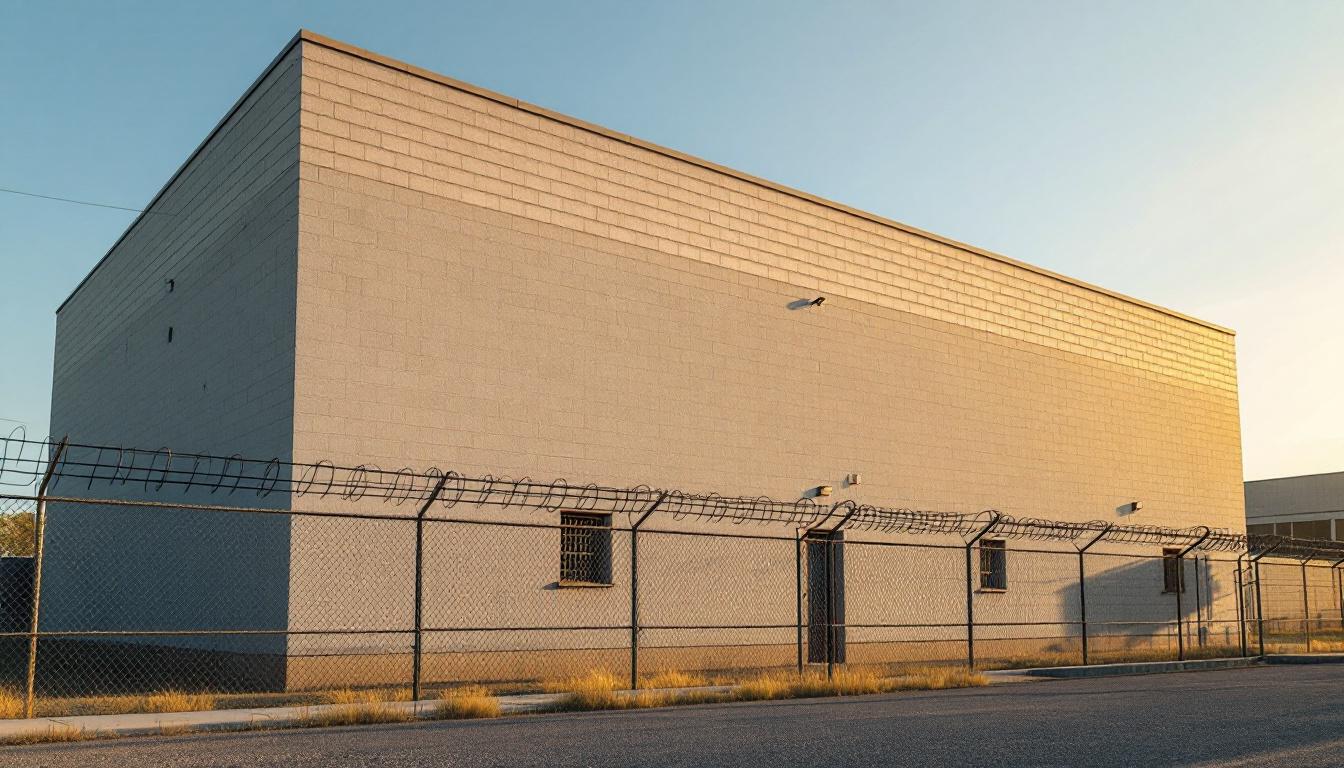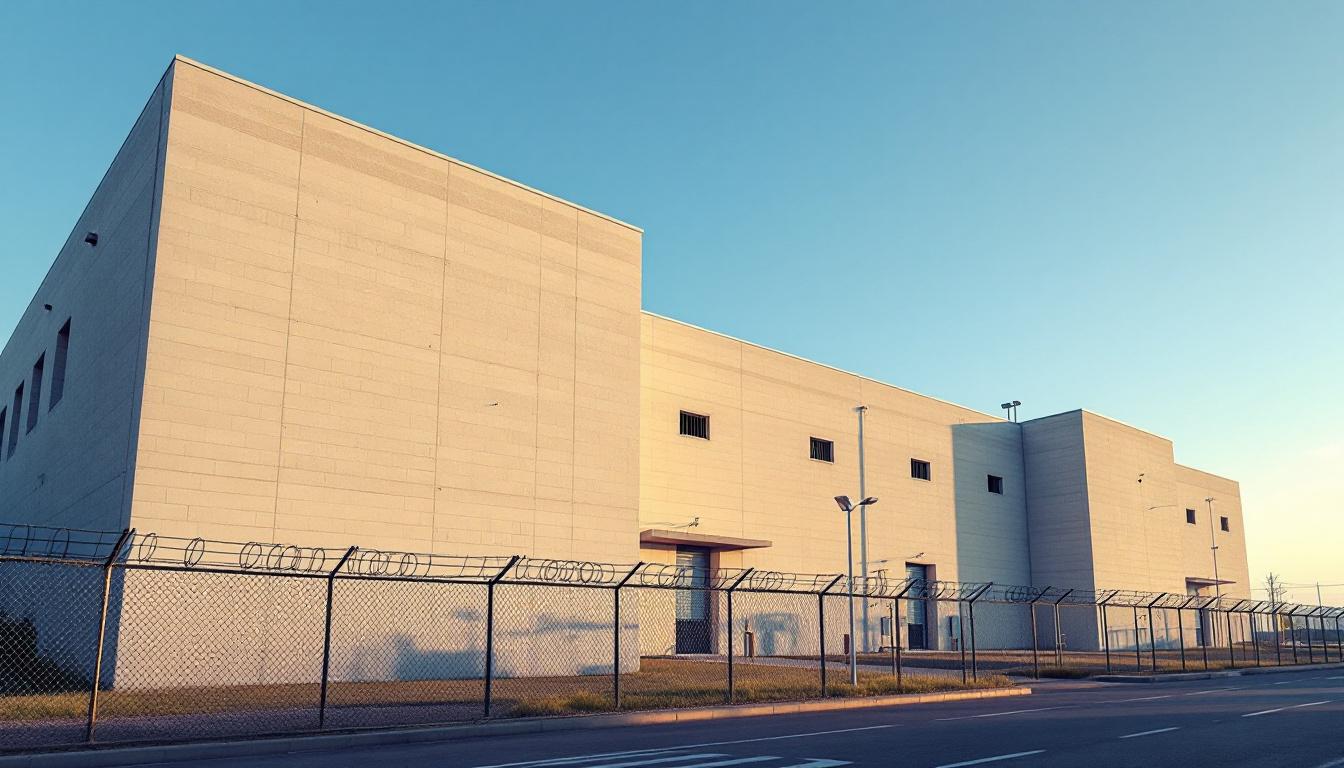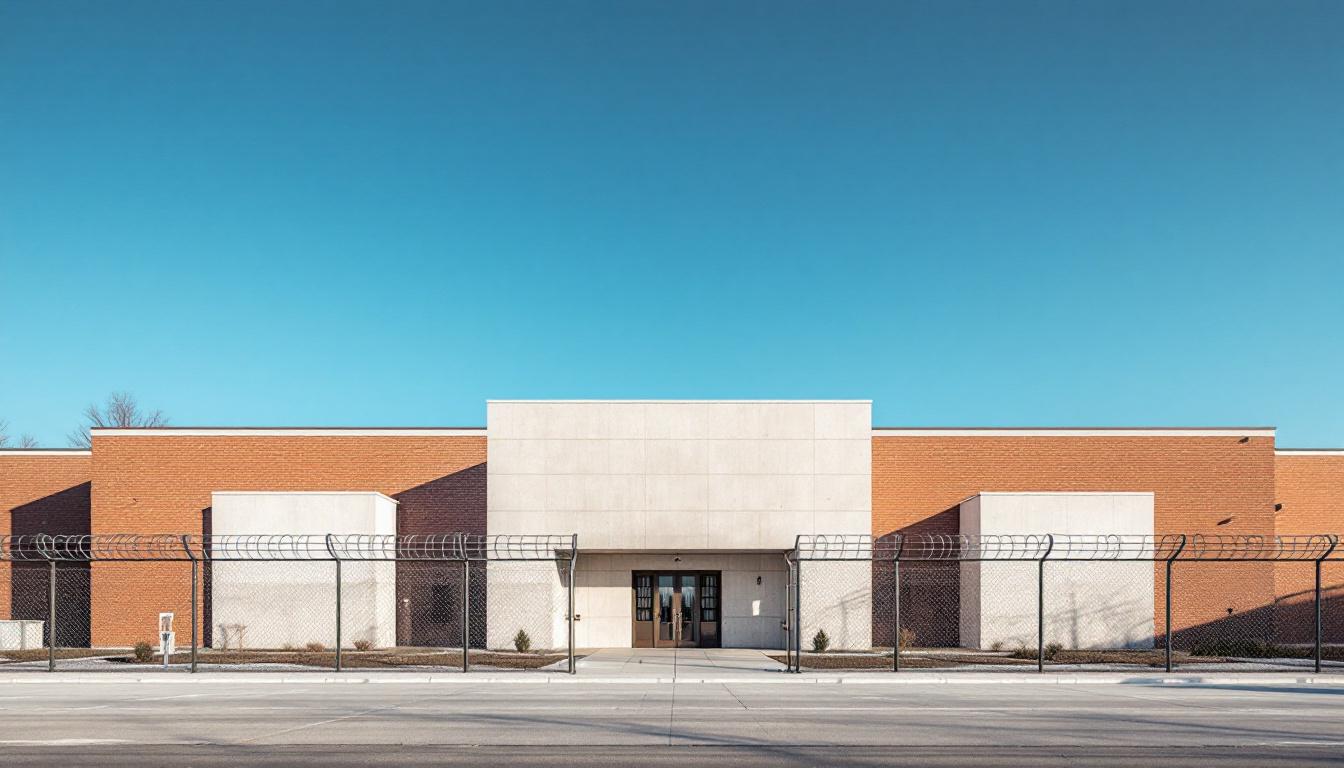
Quick Navigation
How to contact an inmate at Fremont Correctional Facility
This comprehensive guide will walk you through how to connect with an inmate at Fremont Correctional Facility. Follow the steps below to find an inmate and send letters and photos:
- Search for the inmate using our search tool below
- Create your account or log in to Penmate
- Write your message (up to 6,000 characters)
- Send instantly - inmates receive printed copies daily
Find an Inmate
Search for an inmate to start communicating today
Tip: You can search by first name, last name, or inmate ID number
To contact a person at Fremont Correctional Facility start by searching for the person on the facility website. Perform a search by following these steps:
- Step 1: Enter their first name and last name into the search form and click "Search"
- Step 2: Locate their inmate record
- Step 3: Write down their Inmate ID and any housing information provided
Important! Be sure to enter the person's full name. Nicknames should not be used.
How to Send Messages to Inmates

You can use your phone or computer to send emails, letters, and photos to an inmate. Messages are sent electronically to inmate tablets or kiosks at the facility. If you would like to send a message, start by searching for an inmate at Fremont Correctional Facility.
Sending Photos and Postcards

A great way to send love and support to a loved one at Fremont Correctional Facility is to send photos and postcards. It only takes a few minutes to send photos from your phone and it makes a huge difference. You can also mail postcards with words of support and inspiration, or design your own postcard for special moments like birthdays and holidays.
Important! Be sure not to send any explicit photos or they may not be approved by the facility. You can also use a photo printing app like Penmate to make sure your photos are printed at the correct size (4x6 or 3x5) and are mailed according to the rules and regulations of Fremont Correctional Facility.
Frequently asked questions about Fremont Correctional Facility
-
How long does it take to deliver a message?
If you're sending an email message your letter is usually delivered within 24-48 hours. For messages sent via mail you should expect delivery within 3-7 days. All messages will need be approved by Fremont Correctional Facility.
-
How much does it cost to send a message to Fremont Correctional Facility?
You can send a message free using your phone or mail a message via USPS for the price of a $0.60 stamp and envelope. You can also purchase credits or e-stamps from services starting at $1.99.
-
What services can I use to contact an inmate at Fremont Correctional Facility?
Penmate
You can use Penmate to send letters and photos to an inmate from your phone. It's an easy way to stay in touch during your loved one's incarceration. Use the inmate locator to find an inmate's location and contact information, then you can send messages within a few minutes.
Securus messaging
Securus may be another option for communicating with an inmate at Fremont Correctional Facility. You can create a friends and family account and purchase credits to send messages. All messages will be reviewed and must be approved by the facility.
JPay
Some county jails and state prisons may support sending messages with JPay. You must register an account with the system, find your loved one, and purchase stamps to send messages. For some locations you can also attach photos.
Smart Jail Mail
You may also check if Smart Jail Mail is available at Fremont Correctional Facility. Smart Jail Mail is operated by Smart Communications and has contracted with some state and county jails. After purchasing credits, your messages and photos are sent to the facility, printed out, and then handed out to your loved one.
-
What is the mailing address of Fremont Correctional Facility?
Mailing address:
Fremont Correctional Facility
600 Evans Rd
Cañon City, CO 81212
Phone: (719) 269-5002 -
What are the visiting hours at Fremont Correctional Facility?
Visiting hours at Fremont Correctional Facility vary by housing unit and security level. Generally, visits are scheduled on weekends and holidays, with some facilities offering weekday visits. Contact the facility directly at (719) 269-5002 or check their website for the current visiting schedule. Visits typically last 30-60 minutes and must be scheduled in advance.
-
What items are prohibited when sending mail to Fremont Correctional Facility?
Prohibited items typically include: cash, personal checks, stamps, stickers, glitter, glue, tape, staples, paperclips, polaroid photos, musical or blank greeting cards, hardcover books, magazines with staples, and any items containing metal or electronics. Only send letters on plain white paper with blue or black ink. Photos must be printed on regular photo paper (no Polaroids). Always check with Fremont Correctional Facility for their specific mail policies.
-
How do I send money to an inmate at Fremont Correctional Facility?
You can send money to an inmate at Fremont Correctional Facility through several methods: 1) Online using JPay, Access Corrections, or the facility's approved vendor, 2) Money orders mailed directly to the facility with the inmate's name and ID number, 3) Kiosks located in the facility lobby, or 4) Over the phone using a credit or debit card. Fees vary by method, typically ranging from $2.95 to $11.95 per transaction.
-
Can I schedule a video visit with an inmate at Fremont Correctional Facility?
Many facilities now offer video visitation as an alternative to in-person visits. At Fremont Correctional Facility, video visits may be available through services like Penmate, Securus Video Connect, GTL, or ICSolutions. Video visits typically cost $10-20 for 20-30 minutes and must be scheduled in advance. You'll need a computer or smartphone with a camera and reliable internet connection. Contact the facility for their specific video visitation policies and approved vendors.
-
What identification do I need to visit an inmate at Fremont Correctional Facility?
All visitors must present valid government-issued photo identification such as a driver's license, state ID, passport, or military ID. Minors must be accompanied by a parent or legal guardian who can provide the minor's birth certificate. Some facilities require visitors to be on the inmate's approved visitation list, which may require a background check. Contact Fremont Correctional Facility for specific ID requirements and visitor approval procedures.
-
How can I find out an inmate's release date?
To find an inmate's release date at Fremont Correctional Facility, you can: 1) Use the online inmate search tool if available, 2) Call the facility's records department, 3) Contact the inmate's case manager or counselor, or 4) Have the inmate provide this information during a call or visit. For privacy reasons, some facilities only release this information to immediate family members.
Facility Overview
Contact Information
Fremont Correctional Facility600 Evans Rd
Cañon City, CO 81212
Phone: (719) 269-5002

About Fremont Correctional Facility
Serving the correctional needs of Fremont County through comprehensive offender management and community safety initiatives, the detention facility in Longview operates as a vital component of Colorado's broader correctional infrastructure. Nestled within the mountain region's landscape, this CO correctional facility maintains its commitment to structured supervision while addressing the complex challenges that arise when managing diverse populations of those incarcerated within its walls.
The Fremont County Detention Center, CO typically emphasizes a balanced approach between security protocols and rehabilitative programming, recognizing that effective detention involves more than containment alone. Staff members generally work to maintain order through established procedures while providing access to educational opportunities, substance abuse counseling, and mental health services that may help address underlying issues contributing to criminal behavior. The facility's operations often include medical care coordination, legal consultation access, and family visitation programs designed to preserve community connections during periods of incarceration.
Within Longview's mountain community context, the detention center serves multiple jurisdictions and may house individuals at various stages of the legal process, from pre-trial detention through sentenced populations awaiting transfer or serving shorter terms. Those incarcerated services typically encompass basic necessities alongside programming aimed at reducing recidivism, though specific offerings may vary based on funding, staffing levels, and individual facility policies that evolve over time to meet changing community needs and correctional standards.
Programs & Services
Personal transformation takes root when those incarcerated gain access to structured opportunities that build skills, address underlying issues, and prepare them for successful reintegration. The facility typically emphasizes a comprehensive approach to rehabilitation, recognizing that meaningful change occurs through consistent participation in evidence-based offerings. This philosophy centers on providing a secure environment where individuals can focus on personal development while addressing the factors that may have contributed to their incarceration.
Educational advancement serves as a cornerstone of the facility's approach to growth and development. Those incarcerated may access education programs designed to help them complete their high school equivalency or develop fundamental academic skills. Furthermore, vocational training opportunities often provide hands-on experience in trades and technical skills that translate directly to employment prospects upon release. These structured learning environments typically emphasize both practical skill development and the discipline required for sustained success in educational and professional settings.
The facility may furnish therapeutic communities that create supportive environments for those working to overcome substance abuse and behavioral challenges. Victim awareness programming often helps participants understand the impact of their actions while developing empathy and accountability. Furthermore, specialized services typically include veteran services for those who have served in the military, religious services that provide spiritual guidance and community support, and trauma-informed care approaches that address underlying psychological factors. These comprehensive support offerings work together to create multiple pathways for personal growth, ensuring that those incarcerated have access to the resources most relevant to their individual circumstances and rehabilitation goals.
Daily Life & Visitation
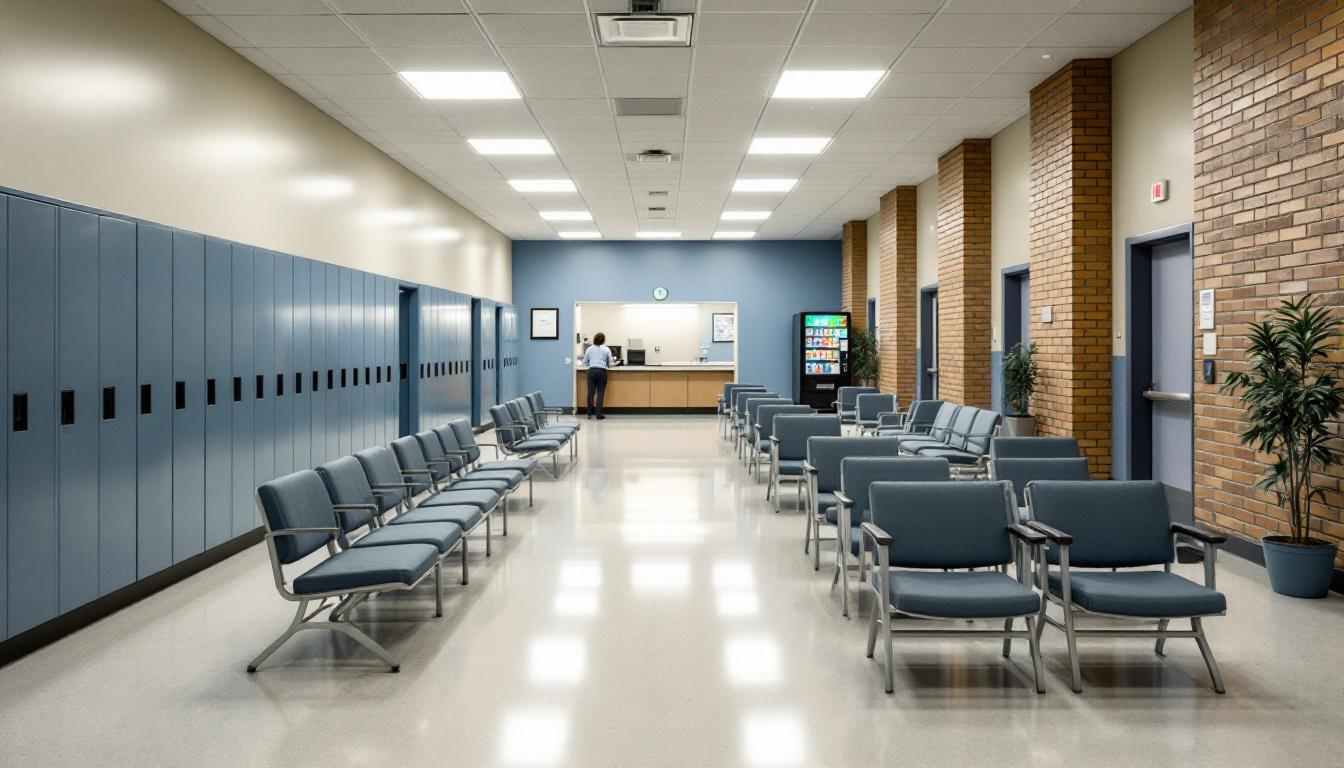
Family connections and community bonds remain vital lifelines for those incarcerated at Fremont County Detention Center, where maintaining relationships with loved ones helps provide stability during a challenging time. At present, the facility actively structures daily routines around scheduled activities that encourage positive social interactions among residents. The day typically begins with an early wake-up call, followed by breakfast and head counts that ensure everyone's safety and accountability.
Living accommodations generally consist of shared housing units where those incarcerated develop informal support networks with their peers. These dormitory-style or cell arrangements often foster conversations and mutual assistance as residents navigate their daily experiences together. Furthermore, communal dining areas furnish opportunities for social interaction during scheduled meal times, where residents may discuss their backgrounds, share advice, or simply provide companionship to one another.
The facility typically offers various recreational activities and structured programming schedules that help residents maintain physical fitness and develop new skills. Those incarcerated may participate in educational programs, work assignments within the facility, or group activities that promote personal growth. Although security protocols govern all interactions, visitation policies generally allow regular contact with family members and friends through scheduled visits, phone calls, and correspondence. These communication options help preserve essential family bonds and community connections that support successful reintegration upon release.
Ready to Connect?
Start communicating with your loved one today
Search for an Inmate
